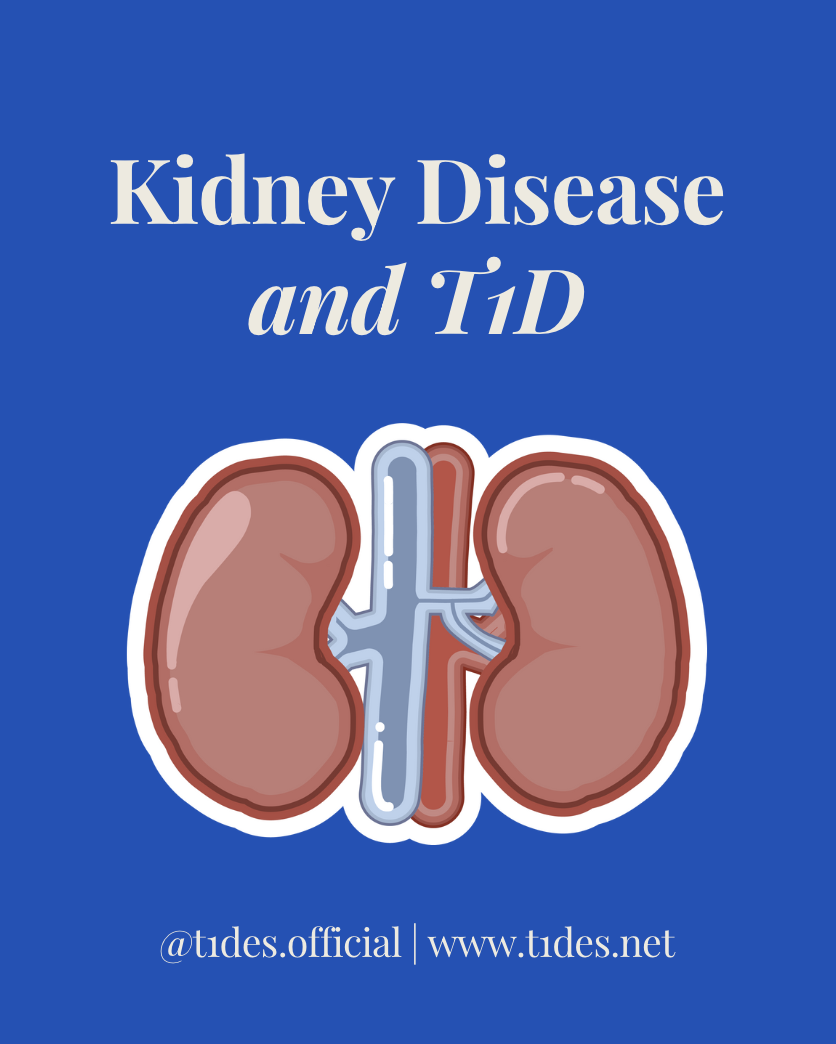Type 1 diabetes originates from the pancreas, but it can impact the functioning of other parts of the body as well. Kidney disease is an example. In fact, 1 in 3 people with diabetes in the US have diabetic kidney disease. And it’s not just a coincidence. Diabetes-caused conditions are the culprit of this high kidney disease rate.
What is Chronic Kidney Disease?
Chronic Kidney Disease, or CKD, is caused by damage to your kidneys so they can no longer function properly. When kidney disease is caused by diabetes, it is also called diabetic nephropathy or simply diabetic kidney disease.
Chronic Kidney Disease in Diabetics
CKD can be caused by a variety of factors, including diabetes. In particular, hypoglycemia (high blood sugar) can result in damage to organs, tissues, and nerves.
Hypoglycemia can create narrow and clogged blood vessels in the kidneys, impacting how effectively it can filter fluids. Over the years, this can lead to serious consequences, including kidney failure. Additionally, diabetes can also impact the nerves in your pancreas. As a result, you may not be able to feel a full bladder, the pressure can damage your kidneys, and a prolonged full bladder increases the chances of urinary tract infections.
Symptoms
Early on, symptoms may not be visible, but they can develop. Some symptoms include:
- High blood pressure
- Swelling (feet, ankles, hands, eyes)
- Foamy urine
- Shortness of breath
If experiencing these symptoms, it’s best to seek medical help immediately, as kidney disease has likely progressed to later stages.
Treatment
The best way to control or prevent diabetic kidney disease is to try to control blood sugar levels. Since the cause of kidney disease is due to high blood sugar levels blocking blood vessels, the most straightforward way to slow kidney damage is to monitor blood sugar.
In addition, high blood pressure can also exacerbate kidney disease, so it’s important to watch that as well. Doctors may prescribe ACE inhibitors or ARBs in order to lower blood pressure. In some cases, these medications may be prescribed even with normal blood pressure because they can also assist in slowing kidney function.
Dietary changes like eating less protein and salt can also be helpful. Keeping cholesterol and lipid amounts low can prevent blood vessels from clogging more.
Sources
Mayo Clinic. “Diabetic Nephropathy (Kidney Disease).” Mayo Clinic, 24 Oct. 2023, www.mayoclinic.org/diseases-conditions/diabetic-nephropathy/symptoms-causes/syc-20354556 .
National Kidney Foundation. “Diabetes and Kidney Disease (Stages 1-4).” National Kidney Foundation, 2024, www.kidney.org/kidney-topics/diabetes-and-kidney-disease-stages-1-4.

Leave a Reply